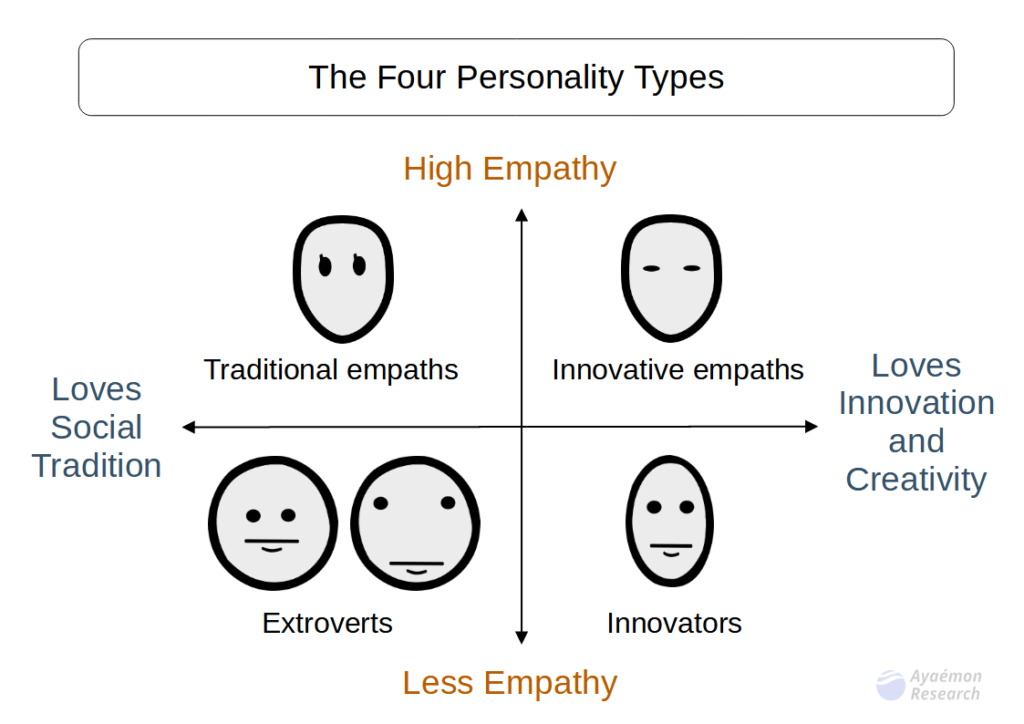In the previous article (this one), I talked about how we have inferiority complexes. Today, I will add more explanations. It is about why and how adult children are made.
How to solve mental problems with adult children
Sometimes, we have mental problems in our lives, such as a feeling of lack of love, lack of confidence, being easily depressed, lonely, having difficulty controlling emotions, or an inability to relax.
Sometimes, it is called adult children of a dysfunctional family (ACOD) if these problems are heavy and continuous. They act and decide as adults, guided by childhood experiences grounded in self-doubt or fear.

They tend to struggle even after they grow up due to their childhood experiences. Those beliefs and habits often prevent them from living comfortably. It is often hard to let go of these ways of thinking.
In such a case, understanding the mental system of how adult children are made would help. Today, I will explain it. That might help us solve the mental problems.
The four types of personalities
First, in conclusion, the lack of experiences, which I define as “integrated personalities,” causes adult children’s problems, in my opinion.
To explain that, I will use the four personality types below:

We classify people’s personalities into four types by two axes: the axis of people who like social tradition or innovation, and the axis of people who are highly empathic or less empathic, as follows:
- Extroverts: People who tend to like competition and follow social tradition. They often leave behind weak people, but it is easier to get a social position. The word “masculine” indicates this tendency.
- Traditional empaths: People who tend to be willing to help weak people and follow social tradition. They often help weak people, but it is hard to get a social position. The word “feminine” indicates this tendency.
- Innovators: (Not in use this time.) People who tend to like competition and have several strong individualities to create innovation.
- Innovative empaths: (Not in use this time.) People who tend to be willing to help weak people and have several strong individualities to create innovation.
We humans have such differences in personalities.

An example of a healthy family
As I mentioned in the previous article, the majority family tends to be as follows:
- The father: an extrovert
- The mother: a traditional empath
They can provide their children with steady values because they do not have to lie about their personalities. Under such parents, the children can judge from their experiences. For example, the children can find their constant rules: “My father always gets angry and scolds me whenever I do this, so I will stop doing it.”

That provides the children with solid templates of personalities and the ability to judge from their experiences. “This person seems to be the same type as my father, so I will behave like this.” “It is better to follow my father’s teachings in business.” “It seems better to follow my mother’s rules in this social community.”
Thanks to the solid templates, he can act appropriately. That brings him success and confidence in relationships with people or society.
Parents’ lying about personalities causes confusion
On the other hand, sometimes parents misunderstand that the majority is the best and pretend to be such people, even though they have different personalities. In other words, they lie in their personalities. The following is a typical example:
- The father: a traditional empath who takes on the role of an extrovert. He tries to be a usual father.
- The mother: an extrovert who takes on the role of a traditional empath. She tries to be a usual mother.

These lies create adult children. In this case, the father needs to care for weak family members because he is empathic. It is hard for the mother to do it because she is less empathic. However, they keep lying.
The confusion causes problems for the children
That causes the children’s confusion because they do not provide them with integrated personalities. Sometimes, the father behaves as an extrovert, but sometimes as a traditional empath. The mother is the same. In other words, they often change their values. That confuses the children. The children cannot find solid rules in their values.
That makes children look at other people’s behaviors and continue to make temporary, instant decisions because those children cannot decide based on their experiences.

The children do not have solid templates of personalities. They feel nothing is certain. It is hard for them to predict what behavior is good or bad for their parents.
That causes many problems, such as a feeling of lack of love, lack of confidence, being easily depressed, lonely, having difficulty controlling emotions, or an inability to relax, as I mentioned at the beginning of this article.
The logic of a generational chain of confusion
Furthermore, those children tend to be with confused people like them. That causes a generational chain of confusion.
This may be easier to understand if we assume an example of clothing. We have solid styles of clothing for the seasons. For example, we often wear short-sleeved shirts and shorts in the summer. We usually do not wear gloves in the summer. That is a template of a summer style.

However, the confused people do not know it. They confuse summer clothes with winter clothes because their parents often change their styles. That makes them wear gloves even in the summer.
These confused people say, “I love summer! I am this personality!” but we healthy people can find something wrong with them. In other words, we can feel their lies. That makes us avoid them.
That makes them alone. The only people who can be with them are those who have similar confusion. After they marry and have children, their children will also be confused with the values. That is the logic of the generational chain of confusion.
The whole mental picture provides a solution
However, we can solve it if we understand the whole mental system. We can know the existence of solid templates of personalities and learn them.
That allows us to judge from our experiences and live based on our personalities. We will understand that we do not have to lie about our personalities.

That also gives us success or relaxation because we can judge people or societies with solid templates. For example, we can judge with knowledge: “This person seems to be the traditional empath, so I behave like this.” “This business is for extroverts. It will not suit me.” “This community seems to be better for innovative empaths. It will suit me.”
Conclusion
Therefore, the lack of experience with integrated personalities causes mental problems in adult children, in my opinion.
We can solve it if we understand the whole mental system. We can see that there are solid templates of personalities. We can learn it.
That might help us solve the mental problems with adult children.
Thank you for reading this article. I hope to see you in the next one.


